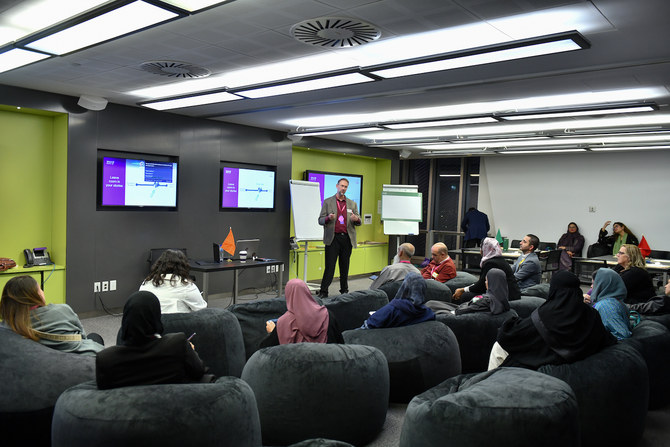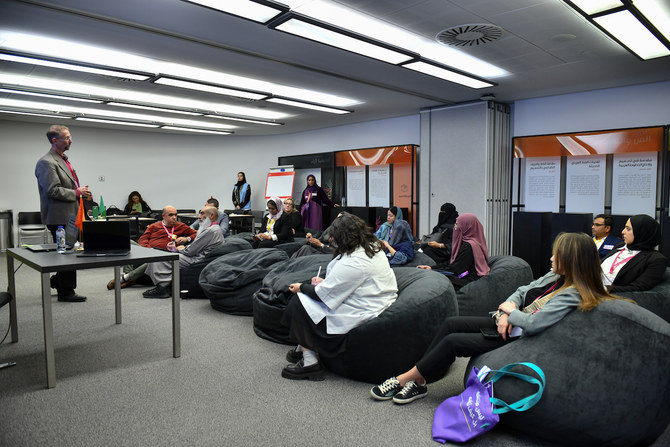DHAHRAN: The King Abdulaziz Center for World Culture, Ithra, transformed into a massive learning hub for the Learning Beyond Conference in Dhahran at the weekend.
The two-day event featured 22 interactive talks, 50 speakers, four book signings, and 15 workshops, inviting educators, parents, content developers, intellectuals, lifelong learners, and education entrepreneurs to explore the theme of “storytelling.”
Since its inception, Ithra has been at the forefront of merging old and new, consistently pivoting innovative technology while honoring the past. The goal is to amplify Saudi narratives across various mediums. At the Learning Beyond Conference, diverse interactive spaces, including picture books, photography, traditional methods, and ChatGPT, catered to every learning style.
Many sessions were conducted in both English and Arabic, exploring topics such as sensory storytelling, designing intellectually stimulating learning environments, immersive storytelling, songwriting, and utilizing technologies like artificial intelligence for storytelling, among other topics.
A dedicated space showcased the art of Hasawi bisht, a decorative garment from Al-Ahsa worn during special occasions. Local Hasawi experts were invited to weave the symbolic golden thread, while musicians adorned the space, telling stories through oud strumming or piano keys, each piece conveying a unique tale.
Arab News attended a session called SPAN, which alluded to how our day is split into various spans of time and how each competes for our attention. Hosted by Benjamin Jacobs, a 30-year veteran educator, creative manager Yasmeen Fekak, and marketing professional Muhannad Alhammadeh.
These seasoned professionals engaged 20 participants in a workshop. After a brief presentation, educators were divided into four groups to brainstorm innovative ways to teach complex topics in the classroom.
“What is design thinking? This might be the hardest and easiest question,” Alhammadeh told Arab News. “If you think about design thinking, it’s the way that we were trying to deliver a mindset for educators to be able to build a solution every time they face a problem — while delivering information or content for students or trainees.
“It is just an introduction to unlock whatever skills, whatever tools that you might have. Design thinking is this method that will give you shortcuts to solutions and an enhancement to whatever you're doing in a very, very simple and broken-down way.“
The SPAN session took place in a classroom filled with colorful sticky notes for scribbling ideas and ample opportunities to discuss the most effective teaching or learning methods and their reasons.
“Tonight, it was a drop-in; we were hoping for 16, and we had 20. I would say it was a good problem to have,” Jacobs told Arab News after the successful session.
Fekak shared with Arab News her perspective on the dual roles of learning and teaching. She said: “Sometimes you are the receiver of the information; sometimes, you’re the one handing it out. Sometimes, you are the educator, sometimes you are the student; so it’s all about going back to design thinking and learning.
“What did I learn today? I learned that for us all … we were able to recall our previous experiences as students and able to recall what worked for us and what didn’t and that helped us in trying to come up with solutions that we could actually transfer later,” she added.









































